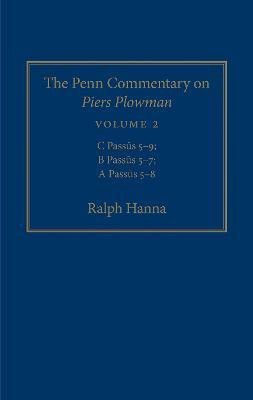The Penn Commentary on Piers Plowman, Volume 2(English, Hardcover, Hanna Ralph III)
Quick Overview
Product Price Comparison
The first full commentary on Piers Plowman since the late nineteenth century, the Penn Commentary places the allegorical dream-vision of Piers Plowman within the literary, historical, social, and intellectual contexts of late medieval England, and within the long history of critical interpretation of the poem, assessing past scholarship while offering original materials and insights throughout. The authors' line-by-line, section by section, and passus by passus commentary on all three versions of the poem and on the stages of its multiple revisions reveals new aspects of the work's meaning while assessing and summarizing a complex and often divisive scholarly tradition. The volumes offer an up-to-date, original, and open-ended guide to a poem whose engagement with its social world is unrivaled in medieval English literature, and whose literary, religious, and intellectual accomplishments are uniquely powerful. The Penn Commentary is designed to be equally useful to readers of the A, B, or C texts of the poem. It is geared to readers eager to have detailed experience of Piers Plowman and other medieval literature, possessing some basic knowledge of Middle English language and literature, and interested in pondering further the particularly difficult relationships to both that this poem possesses. Others, with interest in poetry of all periods, will find the extended and detailed commentary useful precisely because it does not seek to avoid the poem's challenges but seeks instead to provoke thought about its intricacy and poetic achievements. Volume 2, by Ralph Hanna, deliberately addresses the question of the poem's perceived "difficulty," by indicating the legitimate areas of unresolved dilemmas, while offering often original explanations of a variety of textual loci. Perhaps more important, his commentary indicates what has not always appeared clear in past approaches-that the poem only "means" in its totality and within some critical framework, and that its annotation needs always to be guided by a sense of Langland's developing arguments.


